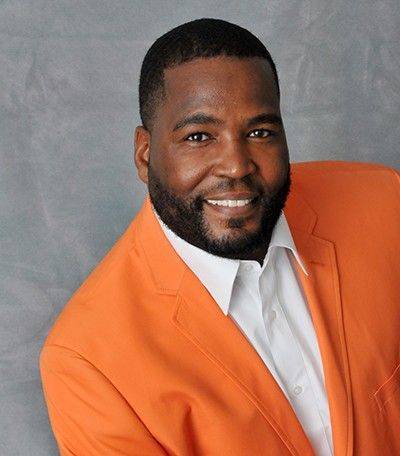In a riveting sit-down with Nick Cannon, Dr. Umar Johnson-a clinical psychologist, certified school psychologist, educator, author, and self-proclaimed "King Kong of Consciousness"-didn’t hold back. Known for his fiery takes, Dr. Umar took aim at hip-hop, igniting a conversation that’s as polarizing as it is profound. With the genre recently celebrating its 50th anniversary, he’s asking a question that cuts deep: Has hip-hop uplifted Black culture-or has it become a destructive force tearing it apart?
Dr. Umar, a towering figure in Black intellectual circles, has long been a lightning rod for controversy. His critiques often resonate with the hip-hop community, where he’s both revered and debated. But lately, he’s found himself at odds with fans of the genre he grew up loving. “I’m a Tupac fan,†he admits, nodding to the slain rapper’s revolutionary spirit. Yet, he argues that hip-hop, as it stands today, isn’t serving Black people-it’s sabotaging them.
“Culture should be progressive, positive,†Dr. Umar asserts, his voice steady but charged. “It’s supposed to reinforce a community’s values and beliefs. If we’re even questioning whether something is dysfunctional or degenerative, we’ve got to ask: Is it still culture-or has it turned into cancer?†For him, the answer is clear: Hip-hop, dominated by gangster rap and its offshoots, has metastasized into something toxic.
A $16 Billion Industry-with Nothing to Show?
Hip-hop isn’t just music; it’s a global juggernaut, raking in $16 billion annually through streams, merchandise, and live performances. It’s the most influential sound on the planet, shaping fashion, language, and attitudes worldwide. But Dr. Umar isn’t impressed. “If all these other cultures can benefit from hip-hop-if music moguls, CEOs, and corporations are cashing out-why aren’t Black artists demanding that some of that wealth flows back to the community?†he challenges. “What has hip-hop built? What problems has it solved?â€
He’s not buying the excuse that artists are “just entertainers†with no duty to fight systemic issues. “Muhammad Ali stood up. Dick Gregory stood up. Harry Belafonte, Nina Simone-they used their platforms for liberation,†he says, listing icons who blended art with activism. “So don’t tell me rappers have no obligation when their music has spent decades shaping how Black boys see themselves and how the world sees us.â€
For Dr. Umar, the content is the crime. He points to lyrics that glorify Black-on-Black violence, objectify Black women, and peddle materialism-messages that, he argues, have indoctrinated a generation of fatherless youth. “This isn’t just entertainment,†he insists. “It’s a public image that’s helped the police, the government, and the white power structure destroy Black lives.â€
Nick Cannon Pushes Back: Art Reflects Reality
Nick Cannon, ever the devil’s advocate, counters with a thoughtful defense. “Art reflects society,†he argues. “Tupac called it reality rap-rappers are telling stories of what they’ve lived.†He rattles off names like Nipsey Hussle, Kendrick Lamar, Chuck D, and KRS-One-artists who’ve woven liberation into their rhymes. “We wouldn’t have them without hip-hop. Don’t they deserve credit for inspiring movements?â€
Dr. Umar doesn’t budge. “A few conscious voices don’t erase the systemic failure,†he fires back. “I’m not here to praise individuals while the genre as a whole stays silent on real change. Where’s the hard activism? Where’s the funding for grassroots movements to fight racism head-on?†He scoffs at the idea that spotlighting a handful of positive rappers excuses the broader culture’s shortcomings.
Cannon presses further: “But isn’t it unfair to expect kids from the block—guys who only know guns, drugs, and gang life-to suddenly become intellectuals? They’re using rap to escape, to feed their families.†Dr. Umar’s response is scathing. “They’ll pull their pants up and speak standard English to work for a white boss, but they can’t change their lyrics for their own people? It’s not about ability-it’s about value. They don’t care about the collateral damage to the community.â€
A Spiritual Crisis: Demonic Possession or Cultural Collapse?
The conversation takes a metaphysical turn when Dr. Umar invokes a chilling theory: “Black America is under demonic possession.†He points to hip-hop, the Black church, and even “snow bunny hoppers†as conduits for dark forces. “We’re God’s chosen people, but the devil’s job is to make us turn our backs on our divinity,†he warns. “Our addiction to materialism, sex, and nonsense-it’s all driven by demons.â€
Cannon leans in, intrigued. “So how do we elevate spiritually if the masses are stuck in that low frequency?†Dr. Umar’s answer is both a lament and a call to action: “We need a cultural Renaissance-like Harlem in the ’20s. Positive music, positive films, positive books. But it’s hard to save souls when they’re drowning in demonically possessed art.â€
He doesn’t stop there. “Hip-hop isn’t even ours anymore,†he claims. “The Caucasians in the music industry run it-they decide what sells. Until we take back control, we’re just puppets.â€
The Reckoning: Fix It or Burn It Down
Dr. Umar’s vision is stark: Either hip-hop redeems itself, or it belongs in “the ash can of African history.†He dreams of a movement that purges the genre of its destructive elements-gangster rap’s violence, misogyny, and excess-and replaces them with messages of empowerment. “Artists don’t just reflect reality,†he says. “They project a new one. Why aren’t they painting a future where Black people thrive?â€
But he’s skeptical it’ll happen. “Even the positive rappers won’t confront the gangsters,†he sighs. “They’re scared of losing streams, sales, relevance. It’s all about money-not sacrifice.†And sacrifice, he believes, is the key. “God won’t free us from white supremacy just to watch us mimic it,†he declares. “Go back to who we’re supposed to be, and the universe will help. Otherwise, our grandkids will be stuck in this same mess 200 years from now.â€
Culture or Cancer? You Decide
As the interview wraps, Cannon throws it to the audience: “Is hip-hop cancer or culture? Drop your take in the comments.†Dr. Umar’s words linger-heavy, unapologetic, and urgent. Whether you see hip-hop as a vibrant legacy or a corrosive force, one thing’s undeniable: This debate isn’t going anywhere. For Dr. Umar, it’s more than a question of music-it’s a battle for the soul of a people.


